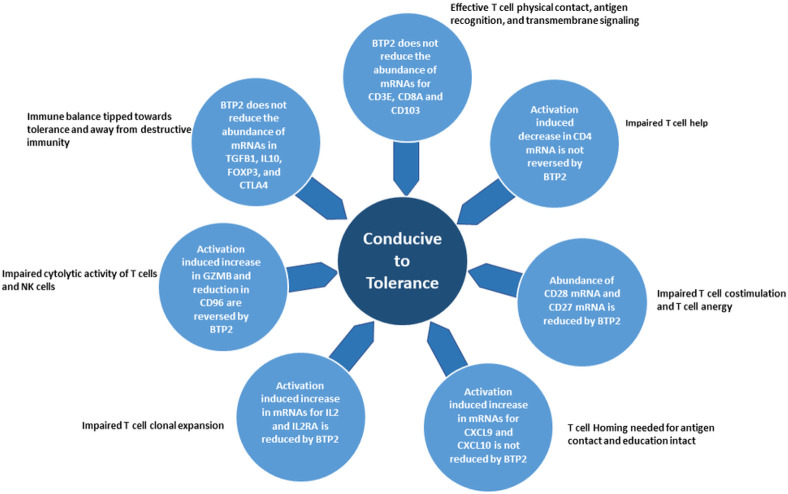Figure 4. Potential consequences of BTP2 mediated selective modulation of gene expression in normal human PBMC.
The lack of inhibitory effect of BTP2 on the expression of mRNAs for CD3E, CD8A, and CD103 should be permissive of physical contact, antigen recognition, and T cell signaling. BTP2 does not reverse activation induced decrease in mRNA for CD4 and this could lead to impaired helper cell function including T follicular helper cell function required for antibody production. Down regulation of mRNA for CD27 and CD28 by BTP2 should impair T cell co-stimulation and promote T cell anergy. T cell homing needed for antigen contact and education should proceed unhindered since BTP2 does not reduce activation induced up regulation of CXCL9 mRNA and CXCL10 mRNA. BTP2 mediated inhibition of activation induced mRNA for IL2 and mRNA for IL2RA is predicted to prevent T cell clonal expansion, a prerequisite for destructive immunity. BTP2 mediated reduction in mRNA for GZMB and the increase in CD96 are expected to impair cytolytic activity of T cells and NK cells. The lack of reduction by BTP2 of mRNAs for the immunosuppressive cytokines TGFB1 and IL10, and the lack of reduction by BTP2 of activation induced increase in mRNAs for the negative regulators of immunity, FOXP3 and CTLA4, are postulated to promotes tolerance. Collectively, BTP2 mediated selective modulation of gene expression in normal human PBMC is hypothesized to tip the immune balance towards tolerance and away from inflammation.

